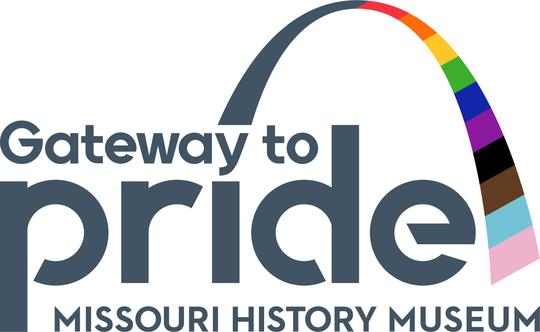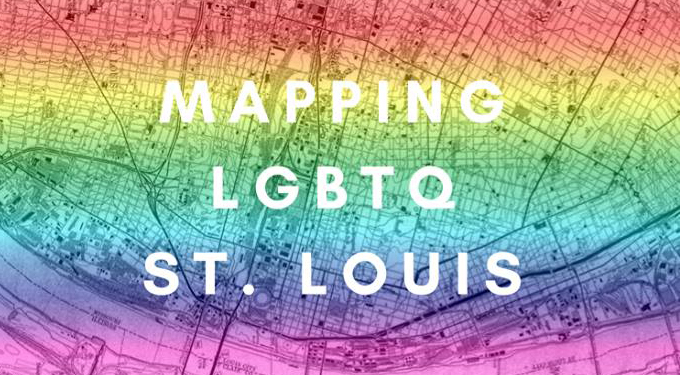Subcategories
-
Tours
St. Louis LGBT History Project Tours:
Walking in the footsteps of history is a memorable way to experience the struggles and successes of our LGBT pioneers. From time to time, we will offer tours of our region focusing on different aspects of LGBT life of yesteryear. Enjoy our first tour featuring St. Louis’ original “gayborhood” - the Central West End. This tour was researched and created by Ian Darnell, Project Historian.
Walking Tour of the CWE
Stop 1
600 N. Euclid Ave.
Trinity was one of the first local religious institutions to open its doors to lesbians and gays. The Mandrake Society - St. Louis’s first homosexual liberation organization - met here for several years after its founding in 1969, and it was an early “Oasis Congregation.” Today it is a meeting place for Growing American Youth and Pride St. Louis.
Stop 2
Tennessee William’s Boyhood Home
4631 Westminster Place
Gay playwright Tennessee Williams (1911-1983) spent much of his early life in St. Louis and attended the University of Missouri and Washington University. He lived for a time in this apartment. William S. Burroughs, another prominent homosexual author, also once lived in the neighborhood at 4662 Pershing Ave.
Stop 3
399 N. Euclid Ave.
For decades, this independent bookshop has served as one of the neighborhood’s cultural centers. It has also long offered a wide selection of feminist literature and queer-themed books.
In the 1970s and early ’80s, it was one of the sites of distribution for Moonstorm, a publication of St. Louis’s Lesbian Alliance.
Stop 4
St. Louis’s First Gay Community Center
4940 McPherson Ave. (now a private residence)
In the mid-1970s, the Metropolitan Life Service Corporation (later called the Midcontinent Life Service Corporation), a secular offshoot of the MCC, operated “the Center” as a place for lesbians and gay men to socialize outside of bars. The space boasted a library and a snack bar and hosted discussion sessions, concerts, classes, and other events. The MLSC also ran the Gay Hotline, offered counseling services, and published a newsletter called Prime Time.
Stop 5
The Metropolitan Community Church
5108 Waterman Blvd. (now a private residence)
The MCC first emerged in St. Louis in 1973 under the leadership of the Rev. Carol Cureton. Originally meeting at the Berea Presbyterian Church in Midtown, the MCC relocated to this old home in the Central West End in December 1974, becoming the first homosexual group in Missouri to own its own facilities. In 1977, lesbian and gay St. Louisans mobilized against Anita Bryant’s ultimately successful campaign to repeal a gay rights ordinance in Dade County, Fla., and held a mass rally here.
Stop 6
Herbies’ Disco
1 Maryland Plaza (now Drunken Fish Restaurant)
In the 1970s, a hip crowd flocked to this two-story disco and restaurant. Disco music and chic attire were the orders of the day. The area around Herbies’ was the epicenter of the Central West End’s LGBT life and the annual raucous Halloween street parties. The largest of these, in 1983, attracted an estimated 50,000 revelers.
Other favorite CWE LGBT club haunts included the Bijou, Brandy’s City Cousin, Earl of Sandwich, Loading Zone, Pleasant Pheasant, Potpourri, and the Silly Goose.
Stop 7
Washington University Medical Center
S. Euclid Ave. & Forest Park Ave.
In 1968, physicians here treated a fifteen-year-old boy, known to history only as “Robert R.” for a mysterious illness. Believed to be homosexually active and likely a prostitute, he died following the apparent collapse of his immune system after more than a year of hospitalization. Two decades later, scientists determined that Robert R. suffered from AIDS, making him the first confirmed victim of the disease in North America. Today, WU is a national leader in HIV/AIDS research and treatment.
Stop 8
Forest Park
In the late 1960s, Laud Humphreys, a Ph.D. candidate in sociology at Washington University, conducted research here that would lead to his landmark book Tearoom Trade: Impersonal Sex in Public Places.
Humphreys discovered that a majority of the men who engaged in anonymous male-male sex in the park’s restrooms were married and living with their wives.
In 1993, Mayor Freeman Bosley Jr. spoke at the pride festival here and later announced the appointment of Laura A. Moore, St. Louis’s first openly gay city official. This marked the start of a new era of visibility and political power for the region’s LGBT community.
Forest Park and the nearby Chase-Park Plaza have also been the sites of several HIV/AIDS fundraisers and numerous other LGBT events.
Additional CWE LGBT History Notes:
CWE was the childhood home of:
-T.S. Elliot, rumored to be bisexual
-Kate Chopin, lesbian themes in her works
-Sara Teasdale, lesbian themes in her works
The CWE street - Newstead - is named after the Englisth estate of bisexual poet Lord Byron.
-
Oral Histories
St. Louis LGBT History Project:
Oral Histories
Oral histories
-
Treasure Drives
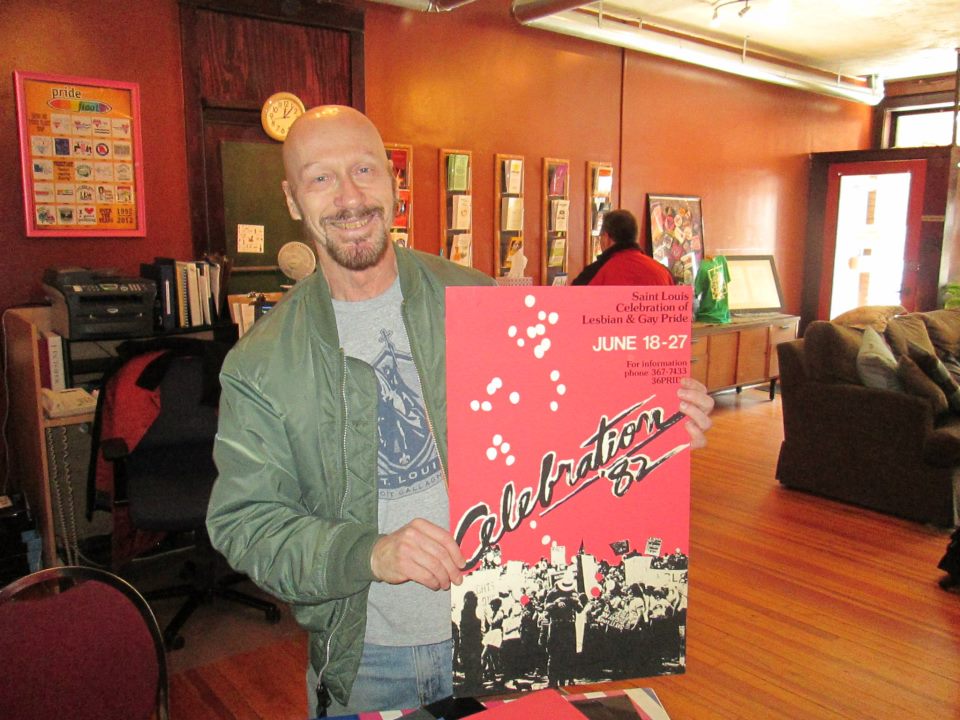 St. Louis LGBT History Project:
St. Louis LGBT History Project:Treasure Drives
Each year, the Project hosts fun and educational "Treasure Drive" events to offer an easy way to donate artifacts to the Project.
Over the years, the Project has yielded some great treasures (journals, scrapbooks, pictures, t-shirts, buttons, posters, outfits, films/videos, bar matchbooks, etc.) that have helped build the Project's Collections.
At these events, the Project can also copy/scan items that individuals are not ready to part with. Of course, you can easily donate items to the Project throughout the year.
Check back for dates for future events.
-
Speakers Bureau
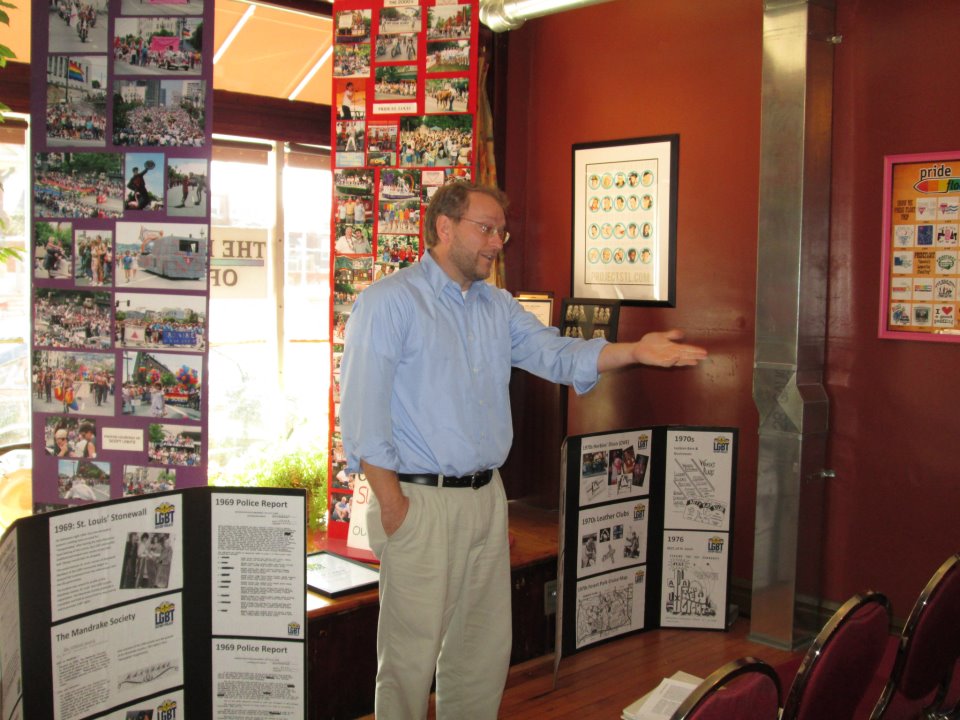 St. Louis LGBT History Project
St. Louis LGBT History ProjectSpeaker's Bureau
The Project is often asked to speak at organizational and community meetings and events.
If you would like to schedule a speaker, contact us at 314-740-0298 or This email address is being protected from spambots. You need JavaScript enabled to view it. . Please give at least a month's notice if you can. There is no fee, but donations are appreciated.
Thanks for your interest.
-
Conservation Consultation
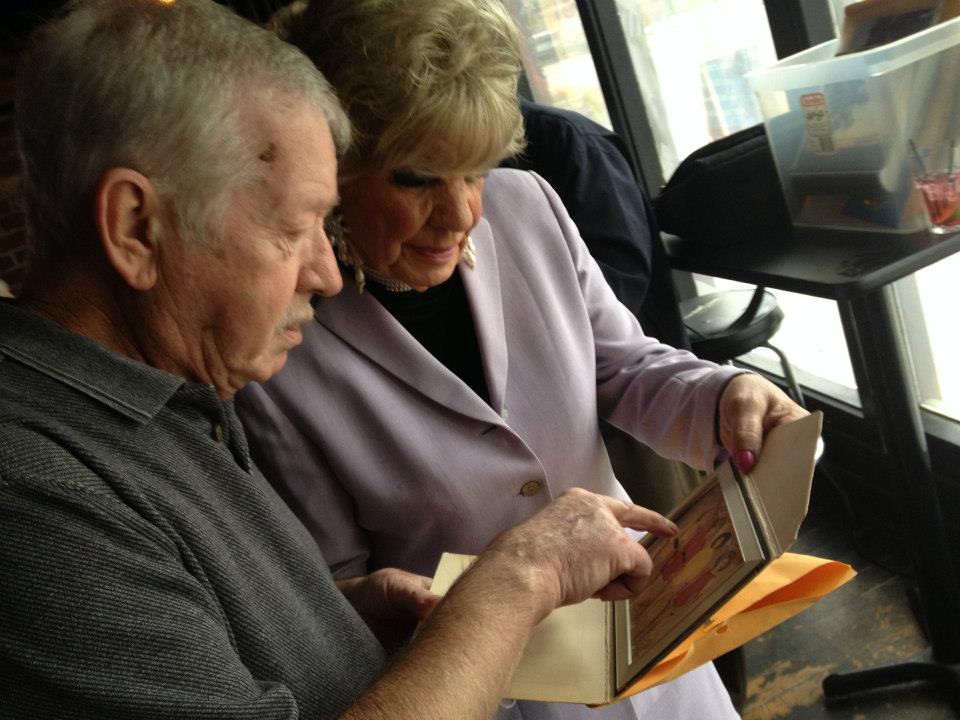 St. Louis LGBT History Project:
St. Louis LGBT History Project:Conservation Consultation
Preserving individual and organizational photos and documents is important to ensuring our LGBT History lives on. The Project is working to enhance the LGBT archives at the State Historical Society of Missouri (St. Louis Research Center at UMSL), to keep donated items safe and secure. We realize that many people and organizations may want to hold on to their own papers, etc., so we are happy to offer advice on historic conservation.
There is no fee for this service, but donations are apprecaited.
Additional Resources:
-
Displays/Exhibits
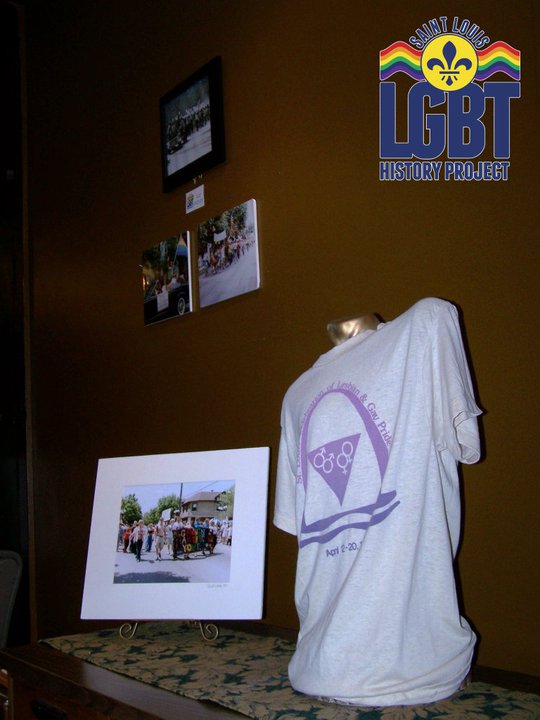 St. Louis LGBT History Project:
St. Louis LGBT History Project:Displays/Exhibits
The Project is quickly amassing hundreds of rare artifacts that bring our history to life. The LGBT Center of St. Louis serves as our "museum" with fun and educational displays/exhibits.
You can see our displays/exhibits at:
LGBT Center of St. Louis (rotating)
Pride Events (June)
Special Events (as scheduled)
-
Archives
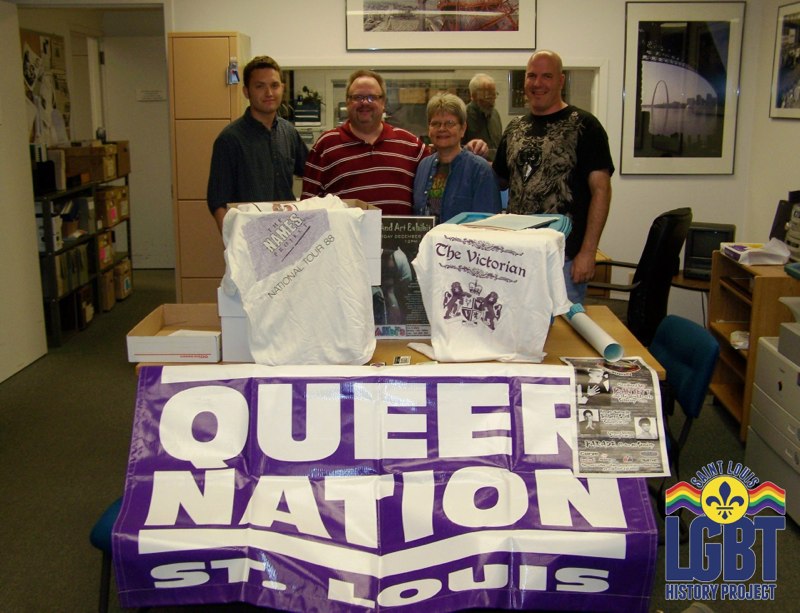 St. Louis LGBT History Project:
St. Louis LGBT History Project:Archives
The Project is an unofficial collecting arm for the State Historical Society of Missouri (SHSM), which has a resource center at the University of Missouri-St. Louis.
In October of 1987 the Community Liaison for Education and Research (C.L.E.A.R.), a member organization of Challenge Metro (formerly the St. Louis Gay and Lesbian Community Services), began an ambitious effort.
This idea consisted of collecting the history of the lesbian and gay community in St. Louis, and was to be called the Lesbian and Gay Archives.
The nucleus of the original archives was a large collection of periodicals, clippings, flyers, and brochures donated by the owner of Our World Too Bookstore, Bill Cordes. After an initial surge of activity, the archives were placed in the care of Fredric Rissover. He continued to collect material and was assisted by Bill Cordes. In the summer of 1991, Fredric made arrangements to place the collection with the Western Historical Manuscripts Collection (WHMC) at the University of Missouri-St. Louis. WHMC is now under the auspices of the SHSM.
Over the years, hundreds of additional LGBT items have been donated to WHMC, including material by noted local LGBT activist Lisa Wagaman, and others - including the St. Louis LGBT History Project. The Project thought it was more practical to work with the exisiting archives, vs. create a new one.
The Project's working relationship with the SHSM assure artifact donors that items are properly conserved and are accessible to the general public for research.
The Project is working with the SHSM to place all St. Louis related LGBT items under one main "umbrella/collection" for easier access.
